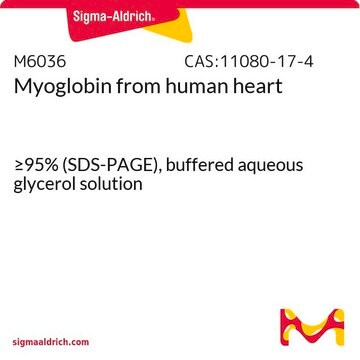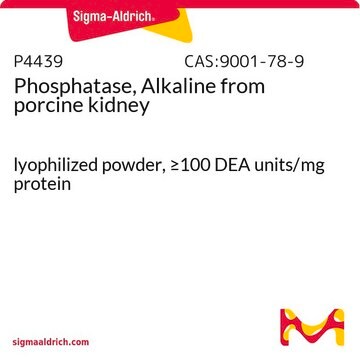P4252
Phosphatase, Alkaline from Escherichia coli
ammonium sulfate suspension, 30-90 units/mg protein (modified Warburg-Christian, in glycine buffer)
Synonym(s):
Orthophosphoric-monoester phosphohydrolase (alkaline optimum)
About This Item
Recommended Products
biological source
Escherichia coli
Quality Level
form
ammonium sulfate suspension
specific activity
30-90 units/mg protein (modified Warburg-Christian, in glycine buffer)
storage temp.
2-8°C
Looking for similar products? Visit Product Comparison Guide
Related Categories
Application
Biochem/physiol Actions
Caution
Unit Definition
Physical form
Analysis Note
inhibitor
signalword
Danger
hcodes
pcodes
Hazard Classifications
Resp. Sens. 1
Storage Class
11 - Combustible Solids
wgk_germany
WGK 1
flash_point_f
Not applicable
flash_point_c
Not applicable
ppe
Eyeshields, Gloves, type N95 (US)
Choose from one of the most recent versions:
Certificates of Analysis (COA)
Don't see the Right Version?
If you require a particular version, you can look up a specific certificate by the Lot or Batch number.
Already Own This Product?
Find documentation for the products that you have recently purchased in the Document Library.
Customers Also Viewed
Articles
Instructions for working with enzymes supplied as ammonium sulfate suspensions
Our team of scientists has experience in all areas of research including Life Science, Material Science, Chemical Synthesis, Chromatography, Analytical and many others.
Contact Technical Service








